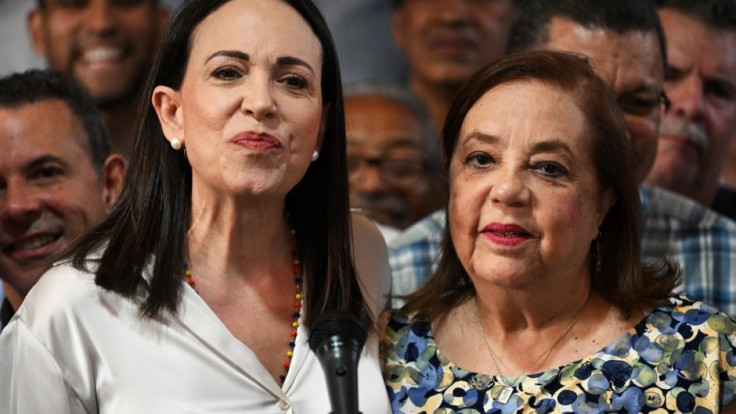
Venezuela's main opposition coalition is voicing its frustration on Tuesday after Corina Yoris, chosen to be its presidential candidate, was prevented from signing up to compete against Nicolás Maduro in July's elections.
Yoris is a stand-in candidate for María Corina Machado, who won the coalition's wide-ranging primary in October but was also prevented from running by the government-friendly Supreme Court.
Two marginal candidates who are not part of the coalition, Manuel Rosales and Enrique Márquez, were in turn allowed to sign up.
Speaking to the press following the news, Machado told press she's not supporting any of the candidates and that she's still behind Yoris, a relatively unknown figure until last week. Yoris is the president of the Venezuelan Society of Philosophy and a prominent member of the Inter-American Philosophy Network, as well as a recognized academic and teacher known for promoting voting in the country.
"We know we've done everything in our power to fulfill the mandate given to us on October 22 (the day of the primaries). We've done what's right. It's a very though time, many people are upset and feel like they've been mocked," Machado said.
She went on to explain that the coalition, Unitary Platform, "wasn't allowed to sign up its candidacy." "The regime prevented doctor Corina Yoris from doing so. We warned about this for many years and it ended up happening. The regime picked all the candidates."
Machado said the coalition won't give up in its attempt to sign up Yoris. "Until the ends means just that. Let's not fall for blackmail. No one will divert us from the electoral path. They want to block it and they won't be able to do it."
Several Latin American countries issued statements condemning the decision by the Venezuelan government, among them Ecuador, Guatemala, Peru and Argentina. "This situation . . . raises more questions about the integrity and transparency of the whole electoral process," a joint statement issued by Argentina's foreign ministry said.
Brazil, whose president Luiz Inácio Lula da Silva has been more sympathetic to the Maduro government, issued a statement of its own saying the decision is "not compatible with the Barbados accords," a series of negotiations conducted in said country that sought to pave the way for freer and fairer elections in exchange for sanctions relief.
Maduro, in turn, signed up as the government candidate with fanfare, joined by supporters and holding a rally outside the electoral council headquarters. However, polls show Maduro to be highly unpopular and that he would easily lose the elections if voters had the choice of voting for an opposition candidate.
© 2024 Latin Times. All rights reserved. Do not reproduce without permission.







